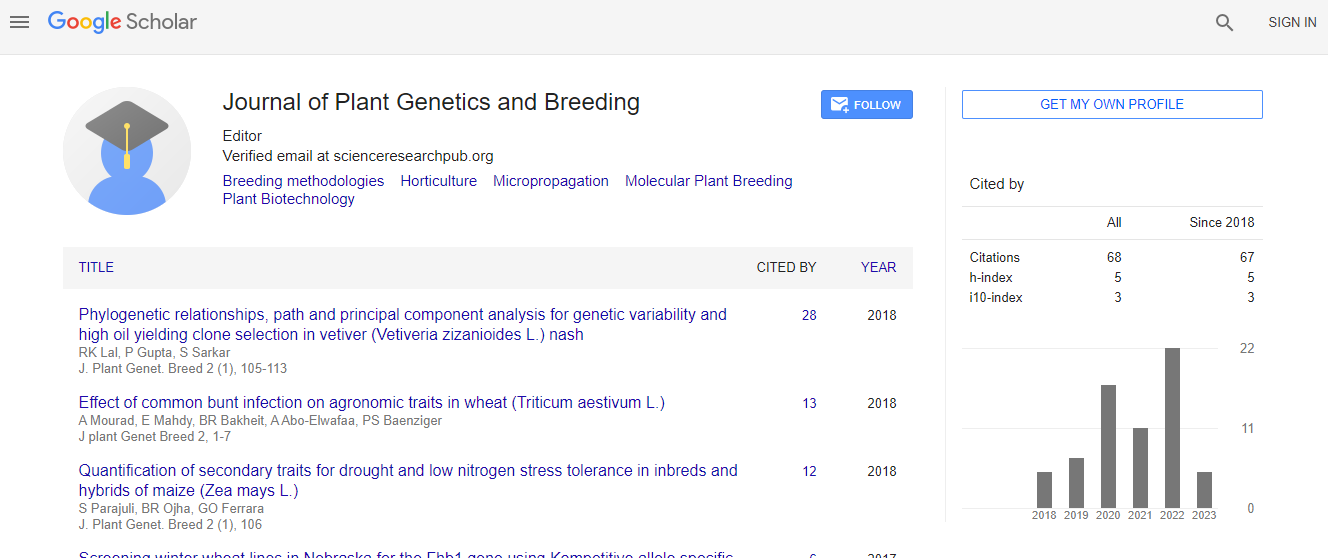The CaChiVI2 gene of Capsicum annuum confers resistance against heat stress and Phytophthora capsici infection
*Corresponding Author:
Copyright: © 2020 . This is an open-access article distributed under the terms of the Creative Commons Attribution License, which permits unrestricted use, distribution, and reproduction in any medium, provided the original author and source are credited.
Abstract
Extreme environmental conditions affect crop growth and development seriously, resulting in a substantial decrease in crop yield and quality. However, chitin-binding proteins (CBP) family member CaChiVI2 plays a crucial role in eliminating the impact of adverse environmental conditions. For the first time, it was discovered that Ca- ChiVI2 (Capana08g001237) gene of pepper (Capsicum annum L.) had a role in physiological processes including resistance to heat stress. The full-length open reading frame (ORF) of CaChiVI2 (606-bp, encoding 201-amino acids), was cloned into TRV2: CaChiVI2 vector for silencing. The CaChiVI2 gene carries the heat shock elements (HSE, AAAAAATTTC) in the upstream region, thereby showing sensitivity to heat stress at the transcriptional level. The silencing effect of CaChiVI2 in pepper resulted in increased susceptibility to heat and Phytophthora capsici infection. It was evident from the severe symptoms on leaves, the increase in O2 and H2O2 accumulation, high- er malondialdehyde (MDA), relative electrolyte leakage (REL) and lower proline contents compared with control plants. In conclusion, the results suggest that CaChiVI2 gene plays a decisive role in heat and drought stress tolerance as well as provide resistance against P. capsici by reducing the accumulation of reactive oxygen species (ROS) and modulating the expression of defence-related genes. The outcomes obtained here suggest that further studies should be conducted on plants adaptation mechanisms in variable environments.

